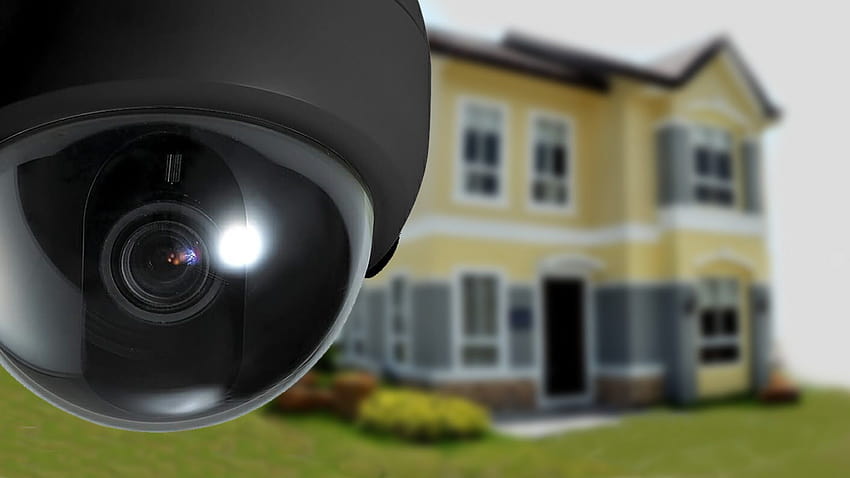
In today’s world, the presence of security cameras has become increasingly ubiquitous, transforming the way we perceive safety and surveillance. From our homes to public spaces, these devices offer us an extra layer of protection and peace of mind. As we navigate through our daily lives, it’s hard to overlook the watchful eyes that monitor our surroundings, often acting as a deterrent to potential threats. The integration of technology with security has changed the dynamics of how we interact with our environment, making us more aware of our safety and that of our loved ones.
The rise of security cameras has sparked conversations about privacy, security, and the impact of constant surveillance on our society. While many embrace the safety that comes from being monitored, others raise concerns about the implications of living under the watchful gaze of machines. Regardless of one’s stance on the matter, there is no denying that security cameras play a significant role in shaping our perception of security and impacting our daily routines. As we delve deeper into the multifaceted world of security cameras, we will explore their benefits, challenges, and the profound influence they have on our lives.
The Rise of Security Cameras
In recent years, the prevalence of security cameras has dramatically transformed the landscape of personal and public safety. Once considered a luxury reserved for businesses and affluent households, these devices have now become commonplace in neighborhoods, schools, and commercial establishments. The advancements in technology have made security cameras more accessible, with options that cater to various budgets and needs.
The evolution of security cameras from bulky, stationary units to sleek, high-definition models equipped with features such as motion detection and night vision has played a crucial role in their widespread adoption. Consumers are increasingly drawn to the peace of mind that comes with knowing their property is monitored. Smart technology integration has further fueled their popularity, enabling users to access live feeds and recordings remotely via smartphones.
As society becomes more aware of issues surrounding safety and crime prevention, security cameras continue to gain traction. The sight of cameras in public spaces has become familiar, fostering a sense of security for many individuals. Their ability to deter criminal activity while providing critical evidence in the event of an incident solidifies their importance in enhancing safety measures across various environments.
Benefits of Surveillance
Security cameras provide a significant deterrent to crime. The presence of a visible camera can discourage potential thieves and vandals from targeting a property. When individuals know they are being monitored, they are less likely to engage in illicit behavior, leading to a safer environment for homes and businesses alike. This sense of security is invaluable, especially in areas prone to crime.
Another benefit of security cameras is the ability to monitor activities in real-time. Many modern systems offer live streaming features that allow homeowners and business owners to check in on their property from anywhere using their smartphones or computers. This capability provides peace of mind, as individuals can quickly respond to any unusual activities or emergencies, ensuring timely interventions when necessary.
In addition to crime prevention and monitoring, security cameras can also provide crucial evidence in the event of incidents or disputes. Footage from security cameras can be used to identify suspects, clarify events during accidents, or resolve conflicts between individuals. This evidence can be invaluable for law enforcement and insurance purposes, ultimately promoting accountability and transparency in various situations.
Privacy Concerns and Ethical Considerations
Wholesale Security Cameras
As the presence of security cameras becomes increasingly prevalent in our daily lives, significant privacy concerns arise. People often feel uneasy knowing they are being monitored, whether in public spaces, workplaces, or even their own neighborhoods. The notion of someone watching can lead to a pervasive sense of unease, prompting discussions about the boundaries of surveillance and individual privacy rights. This tension between safety and the right to privacy is a critical issue that society must navigate carefully.
One of the major ethical dilemmas surrounding security cameras is the potential for misuse of the footage collected. There is a growing fear that recordings could be accessed by unauthorized individuals or even used for malicious purposes, such as harassment or identity theft. Furthermore, the challenge lies in ensuring that the data captured is only used for its intended purpose – enhancing security and safety – and not for infringing on personal freedoms or tracking individuals without their consent. Establishing clear policies and regulations becomes essential to maintain public trust.
In light of these concerns, it is vital for organizations and governments to prioritize transparency and responsibility in their use of security cameras. Engaging the community in discussions about surveillance practices can foster a mutual understanding of the benefits and drawbacks. By implementing ethical guidelines and ensuring accountability, we can strive for a balance between protecting public safety and respecting individual privacy, making security cameras an asset rather than a source of fear.



